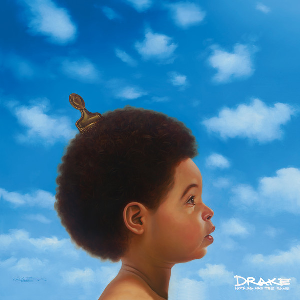Despite the album's name, Nothing Was the Same is a barrage of the same. Implied in every song is the same refrain: "I have a lot of money and things, but the same grudges and the same hang-ups. I'm lonely, and I feel empty inside."
Why would music like this catch on?
I don't ask this negatively. I like it, too. What I'm asking is what it is I and other listeners am responding to when I listen to Drake.
What did the Boomers give us? Nostalgia for a time that never was. "Wasn't everything in America once so great? Remember this? Remember that?" The embodiment of the Boomer mindset is 1994's Forrest Gump, directed by Robert Zemeckis.
What many people who saw Forrest Gump failed to recognize, however, was that the film was not a sincere elegy to America's better past but an ironic sendup of it. Forrest Gump, a man with a low IQ, stumbles from one cultural event into another with little awareness of what it's supposed to mean. The main character meets Elvis and inadvertently gives the performer the Hound-Dog dance. He takes up table tennis and begins to play internationally in China, not realizing he's taking part in Nixon's détente with Mao Zedong. But the knife cuts both ways with Zemeckis, a deeply cynical Boomer. It was all crap, Zemeckis's film is saying, it all meant nothing. Not only America's invasion of Vietnam but the protests against the war and the Black Panther Party to boot. Zemeckis sees history as a flat line, which is wrong, as opposed to most Boomers who saw their past as a big hump with a near-ninety degree slope into the present. Also wrong.
After the Boomers, the Gen-Xers also failed to inaugurate a new vision. Sure, they thumbed their nose at authority, but when they became the authority, it's not as though they acted any differently. Perhaps the best expression of this failure at cultural change can be seen in the 1998 film SLC Punk! What is our main character Stevo's fate? Despite being a raucous punk-rocker, by the end of the film, his plan is to become a lawyer just like his father. Throughout the film, Steve constantly calls his father a sellout to his face. "I didn't sell out," his father replies. "I bought in."
Everybody has their own version of when their national history took the Turn. I'm not beyond this kind of thinking either. It seems to me that following the Second World War, when Americans were riding high on wealth, what was needed was a strengthening of social bonds, especially along labor lines. The supply-side economics of John Maynard Keynes could have never been undermined by the likes of corporate puppet Reagan had the post-war generation taken preventative measures to safeguard their children's futures.
But here we are.
What we millennials have is music like Drake's. That's both good and bad. What's good is that we can see in this kind of music a genuine frustration with the false promises.
Drake is the embodiment of the American dream. Through hard work (and, self-admittedly, luck), he got all the toys that were supposed to make him happy. But where is the love? Social and spiritual fulfilment?
As real-estate mogul Tom Cassidy says in the 1960 film Psycho, "Money can't buy happiness. It can only buy off unhappiness."
Imagine a world in which everyone's material needs were met, where we could all buy off the unhappiness. Then we might be able to form a shared culture where we actually try to find out what will make us happy.
Right now, even a millionaire like Drake can't do that. You need other people to be able to do that. But when all we've got is a culture where everyone is out for themselves, it's going to be hard for any of us to achieve happiness.

Dang bro. Going deep on some drake beats
ReplyDelete